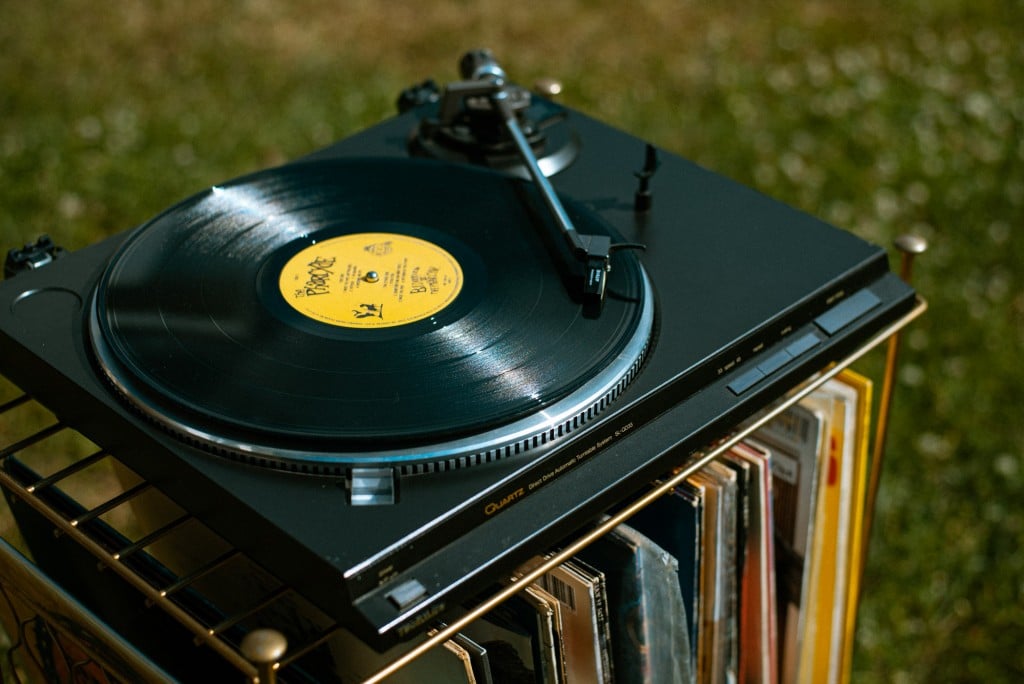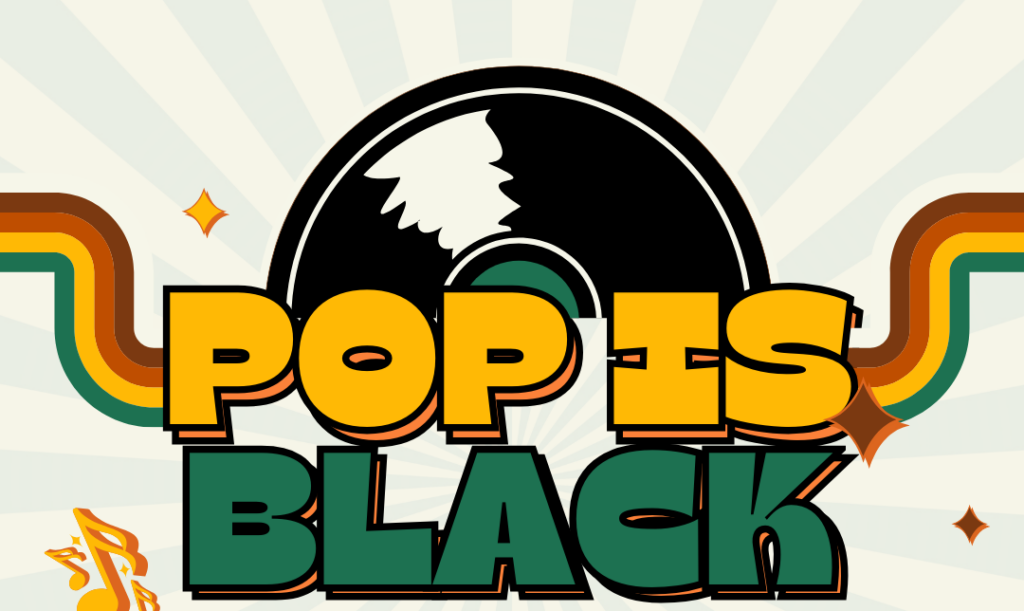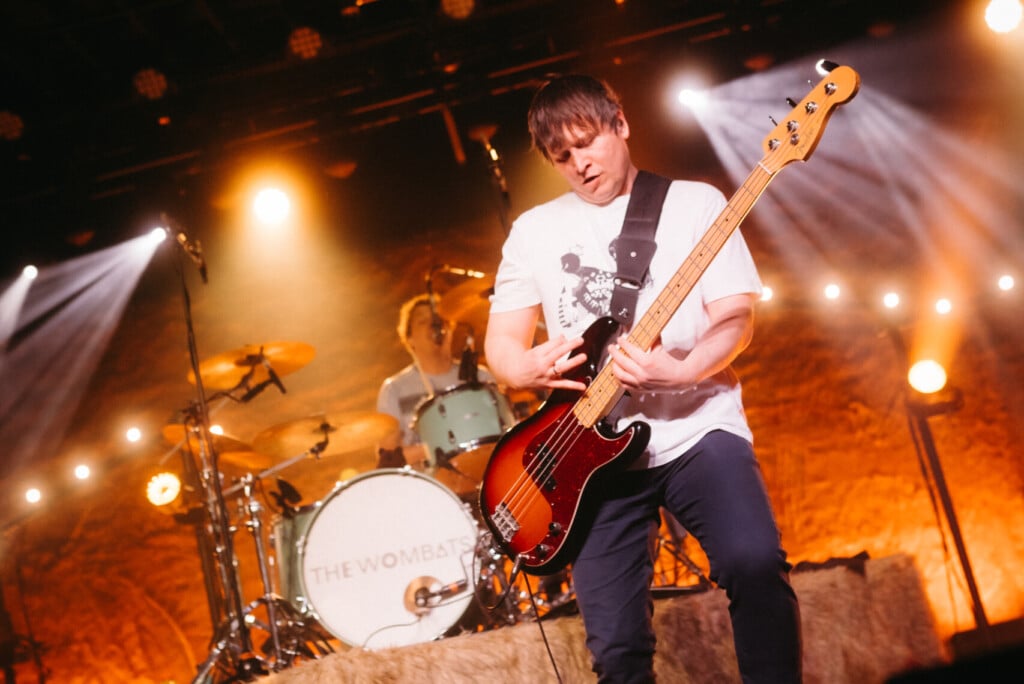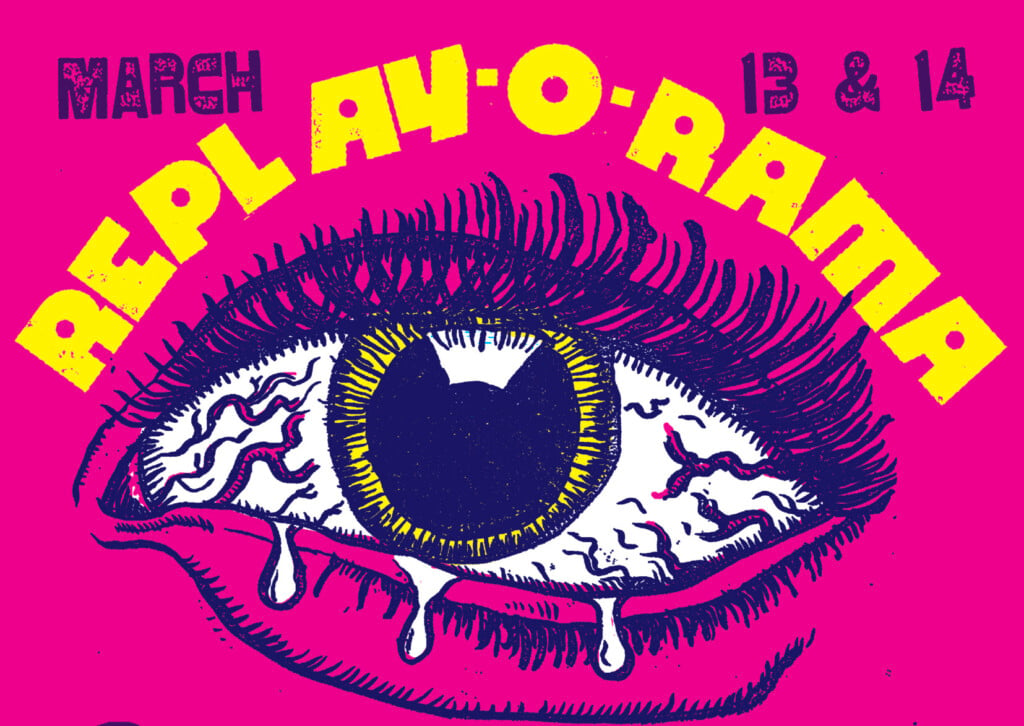The Beths’ Liz Stokes talks Christmas music, Missy Elliott, and public arts funding ahead of Truman show
The Beths play The Truman on Friday, November 21, with Phoebe Rings. Details on that show here.
When do you start listening to Christmas music?
In theory, firing up the classics should bring back the memories of warm tidings, childhood wonder, and the holiday ideals that helped heal the heart of The Grinch. It’s possible, however, for the nostalgic sepia filter to warp, and for the crackle of your records to deteriorate into skips. Sometimes you’re left asking, “Where Are You, Christmas?”
Coming up short upon returning to a familiar source of comfort is a central theme to Straight Line Was a Lie, the fourth and newest album from New Zealand alternative rockers The Beths.
Lead vocalist Liz Stokes, forthcoming about her experience with SSRIs and recent diagnoses of Grave’s and Thyroid Eye Disease, is acutely aware of the elements affecting her emotional outlook, as evidenced by Straight Line standouts “No Joy” and “Metal.”
“Anhedonic on the daily, want to feel but I am failing,” Stokes sings on lead single, “No Joy.”
While joy is elusive, The Beths’ grasp on their cheerful brand of power pop energy, singalong harmonies, and shimmering guitar jams has never been tighter. Following three excellent full-length efforts, Straight Line Was a Lie suggests The Beths–complete with Stokes’ lyrical transparency–have developed with a near-scientific understanding of their identity.
“I know I’m a collaboration of bacteria, carbon, and light,” Stokes sings. “A florid orchestration, a recipe of fortune and time.”
When we interviewed her in October, Stokes suggested it was too early to queue up the holiday tunes, even if enjoying their take of “Have Yourself a Merry Little Christmas” was essential to our research.
“I’m very proud of that version,” Stokes said. “But I’ll probably start in late November.”
As it happens, Stokes’ holiday music threshold lines up with The Beths’ scheduled visit to Kansas City, when they perform Friday, November 21, at The Truman.
The Pitch: You are from Auckland, New Zealand, but I understand the newest album was written in Los Angeles. Where would you say you are based at now?
Liz Stokes: We’re still very much based in New Zealand. We finished a tour in 2024, we did Coachella, and we were on the west coast anyway, and Jonathan and I were like, “What if we just stayed on the west coast? It’s winter in New Zealand. We could stay in the sun for a bit longer, and instead of going into a cabin in the woods to write 50 songs or whatever, we can do it here.” So we just got some sublets and you know, hassled New Zealanders who live in LA to see if anyone is going to be out of town and see if we could, and I just wrote it there instead. It was really fun.
How would you say your time in the Midwest compares to your home in New Zealand? Are there any similar vibes?
I don’t know about vibes. The Midwest strikes me as an extreme place, extreme weather, you know. I think I’ve been to the Midwest when it’s been in the 30s–excuse my centigrade–and absolutely humid, and I’ve been there when it’s -20 and thought we were going to die. I don’t know how that affects people, you just go with the flow because you can’t control the weather.
There’s something about the Midwest where we just get along really well, and the show’s always really well-attended, and there seems like there’s a real love for guitar music and these kinds of songs in a way that feels similar to New Zealand. There’s just kind of like this thing where people love guitar music, they love the bard, they love the songwriter with the guitar, there’s something. It’s there in the Midwest, and we feel it when we’re there.
 Vocal harmonies are an integral part of The Beths, and they seem to have endured on the newest album. What draws you to vocal harmonies? Are they intentionally written or does somebody literally chime in?
Vocal harmonies are an integral part of The Beths, and they seem to have endured on the newest album. What draws you to vocal harmonies? Are they intentionally written or does somebody literally chime in?
They’re very intentional. They’ve been there right from the start. Because I have a real love for them. The first band I was in was just me playing folk songs with my friends, covering Jenny Lewis with the Watson Twins, and it was that kind of call and response, the singer and the chorus. And then with a lot of music I’ve loved since then, a lot of power pop or something, I really enjoy hearing the voices of other musicians in the room, even when they’re not perfect, you know, even when they’re not professional singers. Even though I do love Ray Charles with The Raelettes and that kind of ’60s–with incredible singers, obviously, it sounds great. It’s just, people giving it a go, I’ve always loved that.
And then when we started the band, it was very much, “Okay, we’re going to be a rock band.” You know, guitar, guitar, bass, drums, and we’re going to limit ourselves with that. And when you add in vocals, it becomes another instrument, right? It’s where you can do long notes, you can do chords, something that adds sustain. So it’s adding a fifth instrument into the mix, which you can just use as another texture when you’re trying to, you know, keep everything simple, and kind of Rock Band 101.
I appreciate the word “texture” to describe that effect. The vocal harmonies are really adding a lot.
They’re just fun as well. Everybody has to do the thing where you’re rubbing your belly and patting your head at the same time.
It really kind of enhances the live experience, too; it gives us something to sing along with.
Yeah, for sure. I mean, who doesn’t love singing along to Queen, or Jellyfish, or something weird? The call and response—the kind of Greek chorus thing where everybody gets to chime in.
I admire how forthcoming you’ve been in your music and in interviews about your recent experiences with autoimmune and mental health conditions. I’ve learned a lot about what’s informing your songwriting, but also about the conditions themselves. It’s been very educational for me. Were you at all apprehensive in sharing these details, and do you value its educational impact?
I think people–obviously for good reason–shouldn’t have to share any of the medical, mental health stuff they’re going through, but I also just know most of the people, everyone’s dealing with something. Whether it’s mental health or whether it’s physical health, you don’t really know. When I first found out I had Graves’ disease and was getting Thyroid Eye Disease, I spent a lot of time Googling and just trying to find out people and hear about their experiences and be, “Do I know anybody who has this?” There’s something comforting about being like, “Okay, this has happened to somebody else.”
There was something hilariously comforting about hearing, “Oh, Missy Elliott also has it. Does that make me feel better? I guess.”
I’m not ashamed of it because, you know, it’s not something to be ashamed of. It feels like just putting something out there that we are like, “Okay, well, it’s the truth, and it’s happening.” So if anyone else was like me, and was kind of like looking to see if anybody else has experienced this. You can kind of find something like, “Oh, okay, this person also understands what it’s like.”
I love the idea of asking yourself, “What would Missy Elliott do?”
I think about it all the time. I love her. I saw her at Coachella last year, and she was incredible. She started rapping and I was like, “Oh my god, it’s Missy Elliott.” She sounds exactly like Missy Elliott. It was amazing.
More than 10 years ago, public funding from NZ on Air and NZ Music Commission helped The Beths get on its feet as a project. I have a hard time thinking of a parallel resource for some of my favorite local bands just starting. How important was that support to the success of The Beths?
Oh, it’s so important. We’re going to be lucky that we’ve had these kind of avenues in New Zealand. With anything where you have kind of like arts funding, you have to kind of fight to keep it, right, because right-wing governments will kind of come in and try to strip everything for parts.
We’ve been really lucky to have these little grants for $5,000 NZD to like, make a music video and stuff. That like, for many years, funded this little cottage industry of bands being able to get enough funding to pay for like a single, which allowed them to pay a producer, which helps them. … It’s enough money that you allow these bands to kind of thrive and these people to be making creative things. You know, the people that we have made music videos with for the longest time, they’ve just made a feature film and it just won [Best Feature Film at South by Southwest Sydney], it’s a movie called Weed Eaters. It’s a horror movie and it’s amazing. If it comes out in the States, you should totally watch it.
But without making like, dozens of music videos for DIY bands they wouldn’t have had the experience to be able to then make bigger projects and then make this feature film, you know. And that’s not even talking about the musicians, right? There’s all these follow-on effects for giving small communities money with which to kind of like, make things and do things. It makes a big difference.
I imagine at the beginning of a project, those first few years are the most precarious economically, which is why that sort of early support might go the furthest.
Totally. You’re not guaranteed to get it. Most people apply, and you have to meet certain criteria that involve things that you should be trying to do anyway, right? Trying to play as many shows as your can, trying to, build followings and things like that.
We got funding as well from Outward Sound from the New Zealand Music Commission, which is specifically focused on export. With how isolated New Zealand is, like in the middle of the Pacific Ocean, very far from anywhere, but we export a lot of stuff, right? Say, we grow kiwifruit. We want to grow kiwifruit and export it. It’s very expensive to get it anywhere, so there’s like a New Zealand Farming Commission or a Kiwi Fruit Commission that kind of assists with getting stuff exported. And so we have the New Zealand Music Commission who kind of like, part of the job is to kind of help with that for musicians where the first step of us say, doing a tour of the United States was, A, we needed a visa that’s going to cost us 15,000 NZD but we’re going to need flights to the US for four people, that’s going to be probably another 8,000 NZD, you know, just to start on US tour.
And so stuff like that, where you’re like, “Okay, we have to save,” and we did. Jon and I, before those first couple of tours, we just put in our savings like, “We’re doing this.” And we applied for the funding and we got it and it was enough that when we finished that tour, instead of having to stop and then go back to work because we ran out of money, we were able to like, start the next tour, which is huge. And then that meant we were kind of like on a roll for the next year.
I read a social media post last year that said, “If you like Christmas music, you might actually just be a fan of jazz.” Given your background and your guys’ cover of “Have Yourself a Merry Little Christmas,” would you agree with that sentiment?
I’m learning that, yeah. That’s literally me. I was always like, “I love Christmas music,” but actually what I mean is, I love the album, Have Yourself a Very Swingin’ Christmas, by Ella Fitzgerald, and I just want to listen to that at Christmas time. That’s like the version of “Have Yourself a Merry Little Christmas” that I kind of like, adapted. We put it in 12/8 instead of 4/4 but I love standards, and I love the way that Ella sings them.
The Beths play The Truman on Friday, November 21, with Phoebe Rings. Details on that show here.






